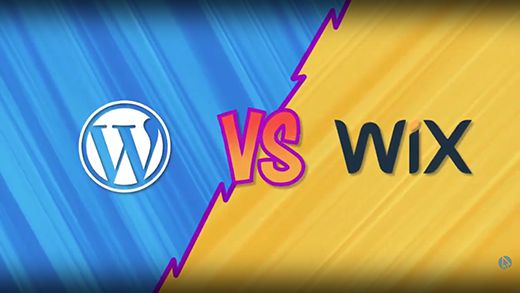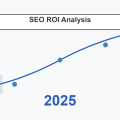Regardless of what technologies, apps, or software there exist on the internet, there are always going to be competitors. Often this leads fans of each to sing their praises, and then those who wish to know more, asking which they should use. This leads invariably to articles such as this where we try to determine which is best. The difference here is that we are comparing Wix and WordPress within a very specific criterion, and that is SEO.
It may help many of you if we briefly explain what Wix and WordPress are and what they are primarily designed to do. If we start with Wix, it is an all-in-one website builder, and it is especially popular with newbies and those for whom website code brings them out in a cold sweat. With Wix you can have your website built very quickly using its pre-designed website temples, it has built-in security, and important for many, it has its own in-house support staff.
WordPress is an open-source content management system which can be used to create hosted websites. It has a bigger learning curve than Wix, but this also means it has much greater scope for flexibility. This means websites can be built with a raft of customisations and thousands of plugins to add greater functionality in both the front end and back end of sites built using WordPress.
When it comes to SEO there is one thing which Wix and WordPress both have in common, and that is their great reliance on third-party software. This will be apps in the case of Wix, and plugins for WordPress. There are several apps which Wix uses for SEO, with one of the most popular called ‘Site Booster’. Site Booster has both a free and premium version and as with most SEO apps it is only the paid one which gives you all the functions that you need to boost your website’s SEO
For WordPress, the range of SEO plugins is even greater and there are some which are used on thousands of WordPress sites, such as Yoast, which is the most popular. Yoast is another SEO plugin with a free and premium version, and although it is only fair to say that the free version does have several excellent SEO features, the paid version is the preferred option.
Once you get into some of the bread and butter SEO tasks that you would wish to carry out, there are certainly many differences between Wix and WordPress. When it comes to off-page SEO Wix is sadly lacking a great deal of the options you would want. Even with apps available, none of them provide the same range of functions that the plugins on WordPress do.
When it comes to on-page SEO, Wix does well and can provide many of the functions you need to optimise your website for the keywords you are trying to rank for. These include your page titles, meta descriptions, and headers. Depending on how competitive your market is, and more specifically, the keywords you are targeting, Wix’s on-page may suffice for many websites.
However, when it comes to the amount of control you have your on-page SEO, and the level of functionality all the available plugins can provide, WordPress is good as you could possibly wish for.
WordPress may be a bit trickier to learn, especially for beginners, than Wix, and if you are someone who hates the technical aspects of building and ranking a website, Wix is perfectly capable of providing you a simpler platform.
For others, once that learning stage is over, any website owner who wants as many tools as possible at their disposal to help them rank their website, WordPress must be the answer. The array of plugins that can you can add to it in order optimise your website in all kinds of ways, especially for SEO agency experts’ use, gives WordPress a huge advantage over Wix.









